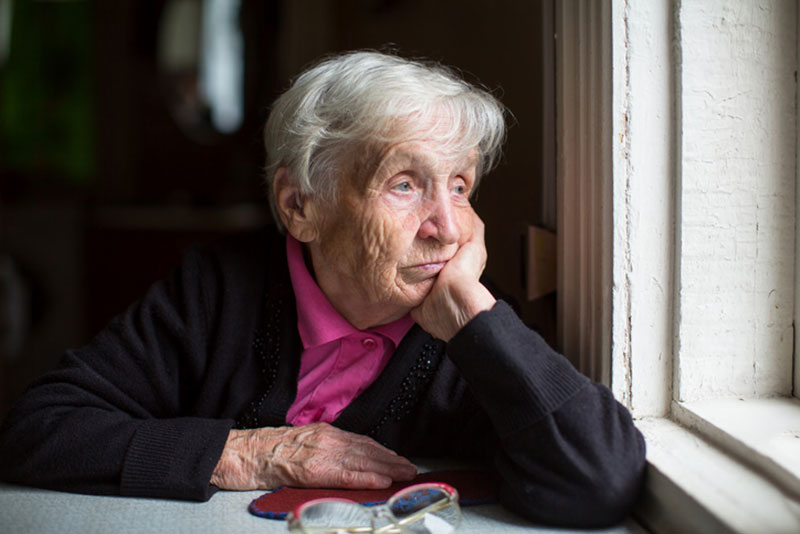
Depression in seniors is serious and needs to be treated immediately.
After the hustle and bustle of the holiday season, it is not unusual for the winter doldrums to kick in. Yet what may possibly look at first glance to be a bit of boredom could in fact be something more serious which should be dealt with.
Anhedonia is a loss of interest in activities that someone once liked and an indication of depression in seniors that is often dismissed. Anhedonia presents through symptoms such as:
- A need to self-isolate and steer clear of social activities and relationships
- Negative feelings directed towards either other people or themselves
- A reduction in emotional abilities
It’s always a good idea to consult with a healthcare provider in the event that you see any symptoms of depression in an older loved one. Effective treatment plans are readily available. Additionally, there are steps family caregivers can take to help, too.
What Can You Do to Assist a Senior Living With Anhedonia?
- Modify the diet. Foods that contain serotonin often help improve a person’s mood and counteract depression. Add in more mood-enhancing foods such as fruit, whole-grain bread, dark chocolate, yogurt, and spinach.
- Encourage exercise. Exercise is yet another way to improve mood through the release of feel-good hormones. Bring the grandkids over to play, head to the gym for a class or to swim, or simply take a stroll together.
- Improve sleep habits. Sleep deficiency and anhedonia can play off one another in a cycle of lack of motivation, anxiety, and fatigue. Establish and keep up with a regular sleep schedule, have a light dinner and then switch off the television and devices, and end the day with soothing activities such as listening to music, working on a puzzle, or reading a book.
- Socialize more. This one can be tough, as anhedonia impacts a person’s desire to be around others. Figure out what types of social settings might feel less daunting to the person: registering for a course, joining a group at their place of worship, regular coffee or lunch get-togethers with a good friend or neighbor, etc.
- Point out the positives. Reminiscing can be helpful for a loved one with anhedonia, allowing the individual to talk about fond memories. Browse photo albums, scrapbooks, or videos together and ask the individual to share with you funny stories from the past. It may help to start a journal of any happy moments that occur each day, no matter how insignificant they might seem. At the end of each week, look back through the journal together to observe how many positives there actually are in our everyday lives.
It is also a smart idea to recommend professional counseling, providing the opportunity for the person to talk to a therapist on a regular basis and to learn some tools to help. And, always try to be as supportive and empathetic as you possibly can. This can be easier said than done with somebody who seems to be unable to break out of negativity. Nevertheless, it’s important to let a senior loved one know you are there with them regardless of the mood.
How Can Home Care Help?
An in-home caregiver is a wonderful resource for an older loved one living with anhedonia. We can provide:
- Companionship for exercising, engaging activities, conversations, and enhanced socialization
- Meal planning and preparation, using healthy, serotonin-rich foods
- Transportation to medical appointments or fun outings
- And a lot more
Get in touch with Morning Glory Home Care’s Highland home care experts at 618-667-8400 for additional information on how home care can enhance quality of life for someone you love. Visit our Service Area page for a full list of the communities where we provide care.
